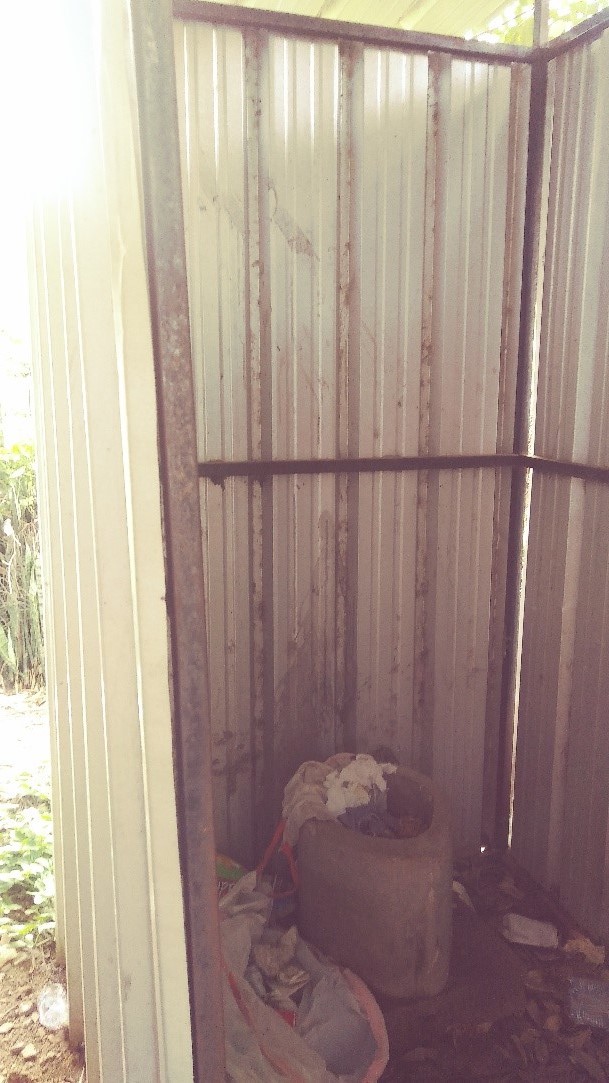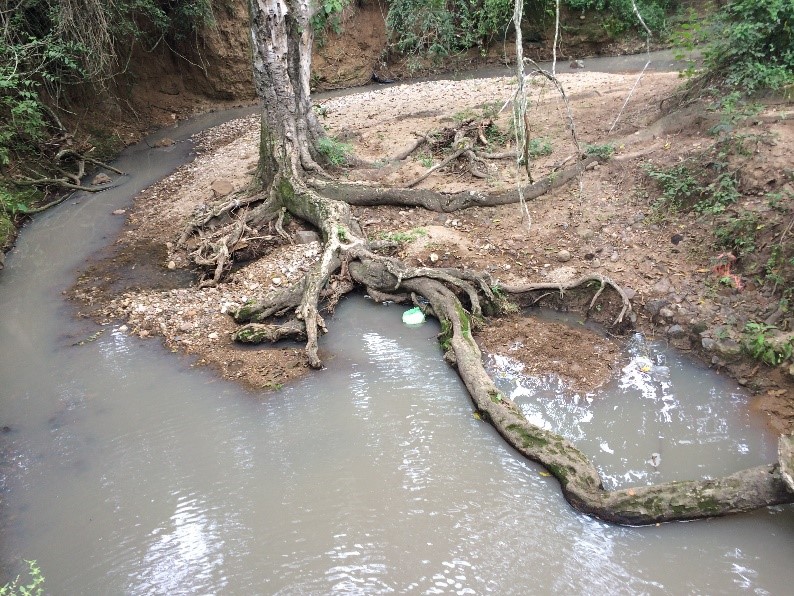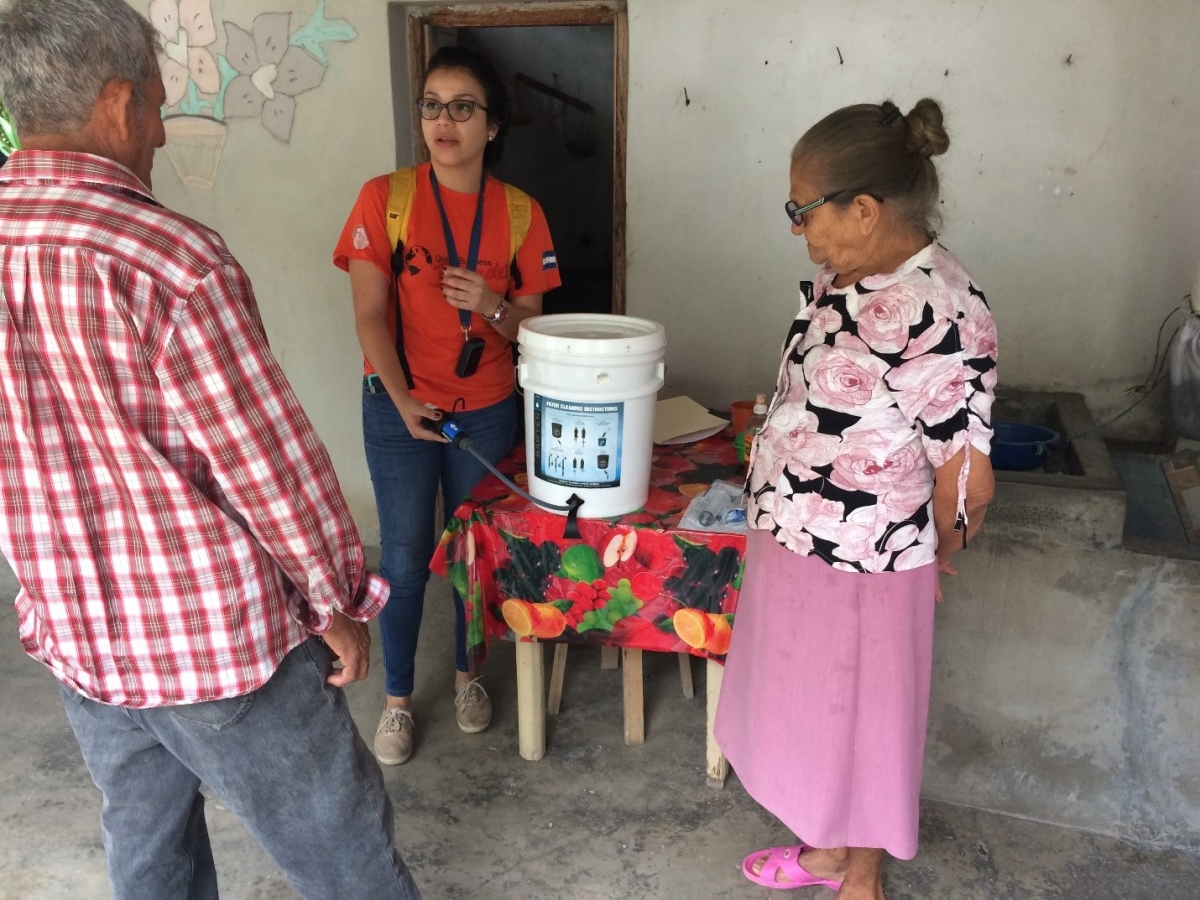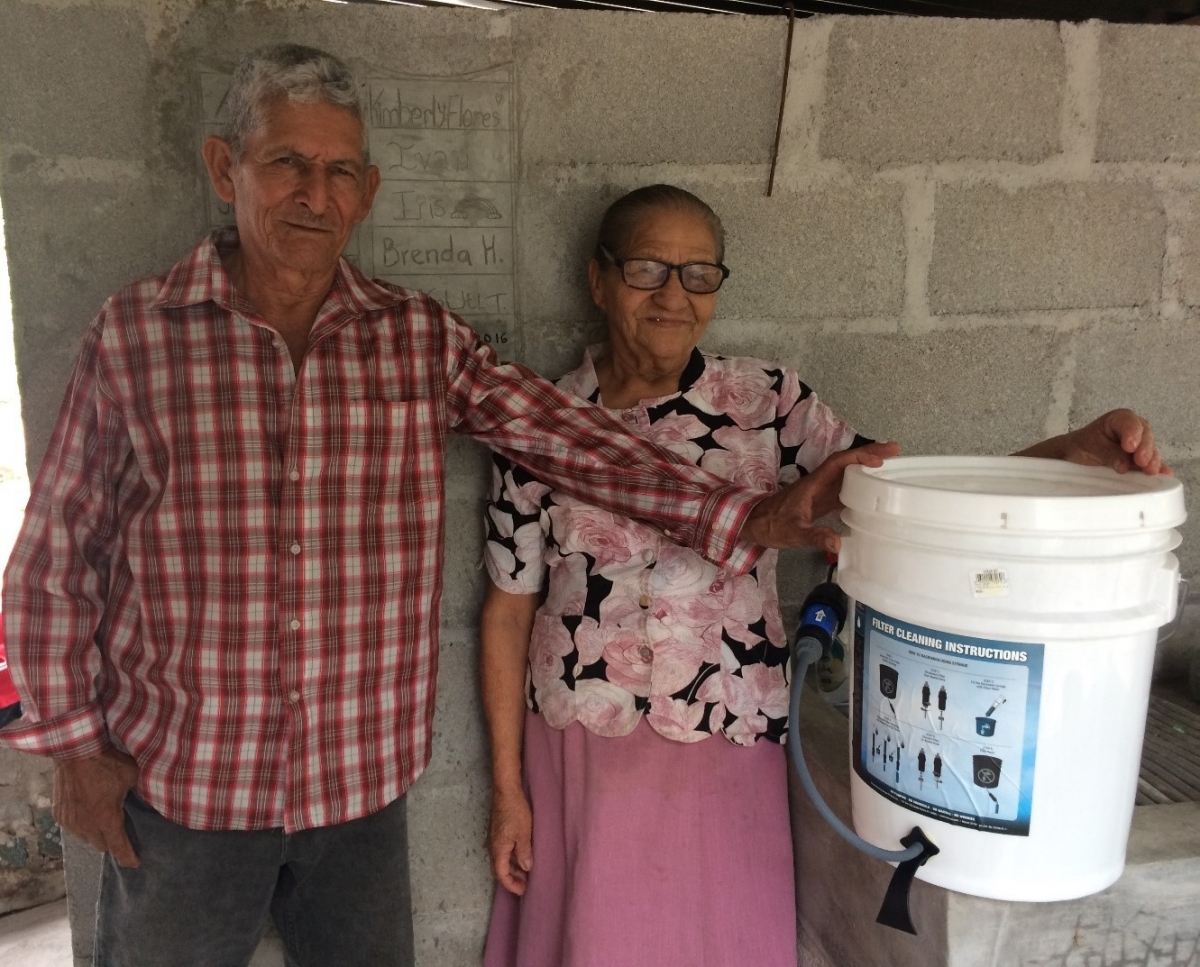Viviendas Rurales Saludables (Healthy Household Initiative): Honduras
|

Honduras is a mountainous, beautiful country checkered with neatly planted fields of corn and beans, thick plantations of bananas, and swaying swaths of sugar cane. Despite the lush scenery, life for rural Hondurans is often much more complicated than what you see on the surface. Many families lack decent and hygienic sanitation facilities, do not have access to safe water, and cook in smoke-filled kitchens. These factors contribute to the two top communicable diseases in Honduras— diarrheal disease and respiratory infections.

An unhygienic latrine.

As a way to improve health, PATH and Global Brigades are partnering to implement a project called Viviendas Rurales Saludables (Healthy Household Initiative), with funding from the InterAmerican Development Bank’s Multilateral Investment Fund. The project focuses on increasing access to and affordability of four health products—improved latrines, clean cookstoves, water filters, and solar products—through strengthening supply chains and via low-cost consumer loans that enable rural families to purchase the products. The ultimate goal is to reduce the health burden of the two diseases mentioned above, through the purchase and use of the products offered.
Today, leaders from Global Brigades and I are visiting the project’s regional sales managers and a few of the communities in which they work. Our first stop is to a community called El Espinito, located in the eastern department of El Paraíso that borders Nicaragua. Several families in this community have purchased a product combination that includes a household water filter and either a clean cook stove or an improved latrine. Each product combination was purchased with a consumer loan, disbursed and managed by a project-supported community savings and loan group located within their community.
We stop by Don Bruno Miranda and Doña Adela Rodriguez’s house to deliver their water filter and watch as they sign their loan paperwork.

Mittchel Benitez of Global Brigades shows Don Bruno and Doña Adela how to use the water filter.
Following a detailed explanation by the Global Brigades representative, Mittchel Benitez, on how to use, maintain, and clean the product, Don Bruno and Doña Adela proudly display their new water filter and are eager to begin using it.

Don Bruno and Doña Adela proudly display their new water filter.
Next we stop by Doña Cruz Miranda’s house to see how her water filter and clean cookstove are working and to ask what if any improvements to household health she has noticed since purchasing and receiving the products in June 2016. Before we are able to pose the question, she tells us how much better her water tastes and that she feels like she is better able to protect her family from water-borne diseases. Furthermore, during the dry months, mentions Doña Cruz, the water from their well comes out turbid, brown colored, and is very unappealing to drink. Her face quickly brightens as she notes with amazement how her new water filter turns this brown water into crystal clear, “sweet” water.

Doña Cruz with her water filter.
Doña Cruz also proudly shows off her recently-installed cook stove, which she has added blue tile to the exterior for easy cleaning and aesthetics. When asked what if any changes she has noticed since using the new cook stove, she mentions how much less she coughs, how her eyes do not sting any longer from the smoke, and how clean her walls and roof have remained, now that the smoke and particulate matter are ventilated outside the kitchen.

As is the case with the other 320 families who have purchased products offered by the project, the Viviendas Rurales Saludables model is empowering rural households to make purchasing decisions as consumers by providing a suite of health products and accessible financial options to help those rural, low-income families overcome the often prohibitive costs of the products offered. Most importantly, the health benefits provided by the use of these products will hopefully help reduce the burden and impact of respiratory infections and diarrheal diseases for these and more rural families in Honduras.














